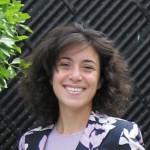Book Review: Vitamin K and the Calcium Paradox
Stacie Deyglio, ND
It is the inordinately simple truth that scientific research is in the business of creating conclusive evidence to support medically sound physiological theories. When research confounds purported beliefs of how and why the body works a particular way, the scientific community balks at the research; such is the case with the role of calcium in bone and heart health studies. Millions of patients take calcium and vitamin D supplements for bone health on the advice of their physicians. Recent research, as highlighted by Dr Rheaume-Bleue in her first book, Vitamin K2 and the Calcium Paradox: How a Little-Known Vitamin Could Save Your Life, reveals that supplementing with calcium and vitamin D is increasing the risk of heart attack and stroke because the added calcium builds up in the arteries. She calls this “the Calcium Paradox: a mysterious, concurrent calcium deficiency (in the skeleton) and calcium excess (in the arteries) that underlies two major health concerns of our time, osteoporosis and heart disease. Vitamin K2 is the key to putting calcium back in its place to remedy this calcium conundrum” (p 4).
While millions of individuals take calcium and vitamin D supplements ostensibly to support and remineralize their bones, the truth is that without the addition of vitamin K2 such a prescription for health winds up being potentially dangerous or even fatal. Vitamin K2 is vital for directing calcium to the bones: “Vitamin K2 funnels calcium into bones to strengthen mineral density and fight fractures while it prevents and even removes dangerous arterial calcification” (p 4). Without it, the body sequesters calcium in soft tissue (ie, the arterial vessels), leading to a combination of osteoporosis and atherosclerosis or to the foundation of the dire calcium paradox.
What is vitamin K2, and why has it been missing from our diets for so long? Vitamin K2 activates osteocalcin (a protein that attracts calcium into bones and teeth) and matrix GLA protein (which removes calcium out of soft tissues such as the arteries). These 2 vitamin K2–dependent proteins are crucial for moving calcium within the body and are regulated by levels of vitamin A and vitamin D. As we know, preformed vitamin A and vitamin D may only be acquired from eating animal foods. Dr Rheaume-Bleue maintains that a diet that includes animal foods profits from the conversion of the sun’s energy and the soil’s minerals into usable nutrition. Grass-fed dairy products are especially high in vitamin K2, and in the book Dr Rheaume-Bleue demonstrates why it is essential to consume animal products that have lived a full life eating nothing but green grass and enjoying adequate healthy sunshine and space, with plenty of it to roam in peace.
proteins are crucial for moving calcium within the body and are regulated by levels of vitamin A and vitamin D. As we know, preformed vitamin A and vitamin D may only be acquired from eating animal foods. Dr Rheaume-Bleue maintains that a diet that includes animal foods profits from the conversion of the sun’s energy and the soil’s minerals into usable nutrition. Grass-fed dairy products are especially high in vitamin K2, and in the book Dr Rheaume-Bleue demonstrates why it is essential to consume animal products that have lived a full life eating nothing but green grass and enjoying adequate healthy sunshine and space, with plenty of it to roam in peace.
She shares an important truth about the importance of being mindful of the quality of the animal products we consume. Conventional grain-fed animal products will be deficient in natural vitamin K2 levels. Having vitamins A, D, and K2 in balance is a vital component of optimal health.
This publication is a must-have for every practitioner! Dr Rheaume-Bleue’s book is phenomenal at breaking down the role of vitamin K2 in the body, disclosing the consequences of vitamin K2 deficiency, and relating how vitamins A, D, and K2 interconnect to form optimal health. Most important are the recommendations on how to restore vitamin K2 back into our diets.
 Stacie Deyglio, ND received her baccalaureate degree in biology with a minor in chemistry from the College of Mt. St. Vincent in New York. Her personal health issues paved the way to discovering naturopathic medicine in 1999. Resonating with the philosophy and principles of naturopathic medicine, Dr. Deyglio graduated from the University of Bridgeport, College of Naturopathic Medicine in 2003. As a medical student, she was involved in student government, fundraising, and the generation of two successful student-run health fairs. Dr. Deyglio’s interests include relating integrative therapeutics to the health of pediatric and geriatric populations. Currently residing in New York, Dr. Deyglio is an avid bookworm and is actively practicing.
Stacie Deyglio, ND received her baccalaureate degree in biology with a minor in chemistry from the College of Mt. St. Vincent in New York. Her personal health issues paved the way to discovering naturopathic medicine in 1999. Resonating with the philosophy and principles of naturopathic medicine, Dr. Deyglio graduated from the University of Bridgeport, College of Naturopathic Medicine in 2003. As a medical student, she was involved in student government, fundraising, and the generation of two successful student-run health fairs. Dr. Deyglio’s interests include relating integrative therapeutics to the health of pediatric and geriatric populations. Currently residing in New York, Dr. Deyglio is an avid bookworm and is actively practicing.








